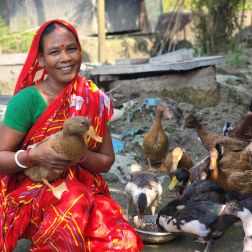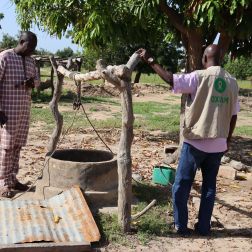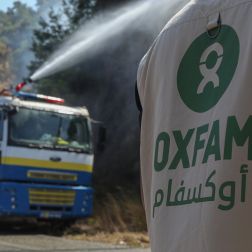- 2 mins read time
- Published: 24th January 2022
Simple Water Solutions, Diverse Benefits
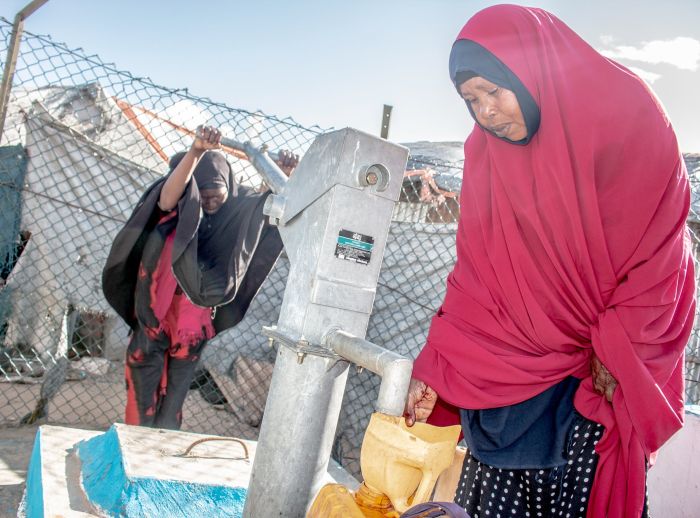
"I collect water four times per day for our household's cleaning, laundry, and other uses. Where I used to collect water was 40 minutes away," explains Caasha Xasan, a mother of seven who lives in Barwaaqo IDP camp in Kismayo.
Recurrent drought in Somalia caused not only food insecurity and displacement but there is also severe water scarcity in rural and urban areas. Rainwater is the primary source of water, and lack of adequate water storage facilities worsens the situation as any rain quickly dissipates.
In many parts of the country, the physical and economic accessibility of water remains a challenge for the poorest and most marginalized communities. Women, who are traditionally responsible for collecting household water, are often most at risk of violence and other risks when fetching water. "Where I used to collect water was 40 minutes away. We would collect water by hand and carry it. Only sometimes would we use donkeys. It would take 40 minutes there and 40 minutes back," says Caasha Xasan.
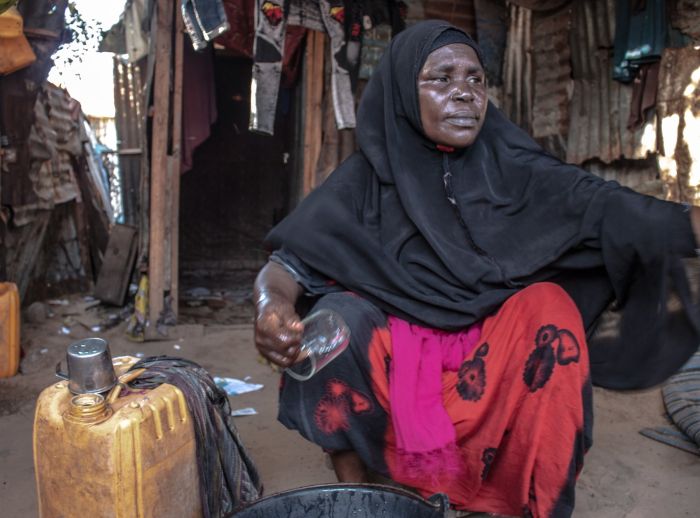
Because of the long distances to the water facilities, women spend extensive time collecting water, struggling to get enough time to feed their children and do other household chores, which are burdens that reduce other opportunities for women's empowerment, such as study or work.
As part of our humanitarian response in Somalia, Oxfam and partner WASDA rehabilitated four shallow wells in Kismayo IDP camps, intending to ensure regular and easy access to water and provide women with more time to pursue other endeavors.
"We get lots of benefits from the shallow wells. Firstly, it's very close to the front of my house. I can fill jerry cans at any time, so I don't need many jerry cans. Now, I do household chores and support my children in my spare time. It would be difficult to prepare food for them before, but now it's easier. I feed them before school. It's also beneficial for the broader family," says Caasha.
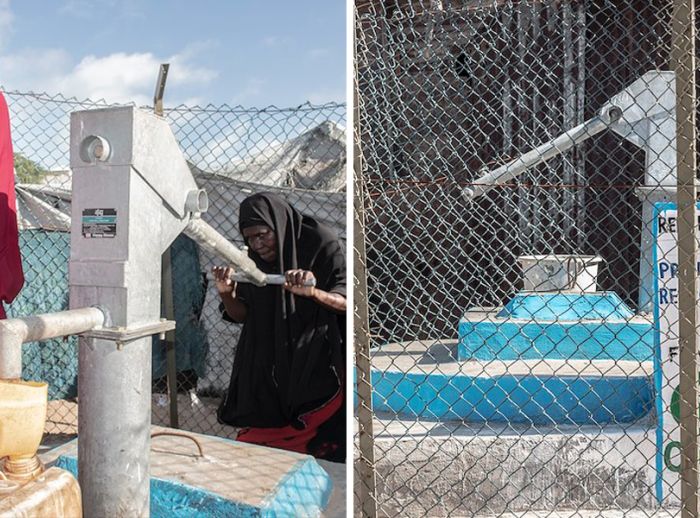
Besides the benefits that she gets from the water kiosk, Caasha believes these facilities have improved integration amongst displaced people and host communities. "We benefit a lot thanks to Oxfam and WASDA. The town has improved as a community because we share all the benefits, which reduces clashes over resources. We are united," she concluded.
